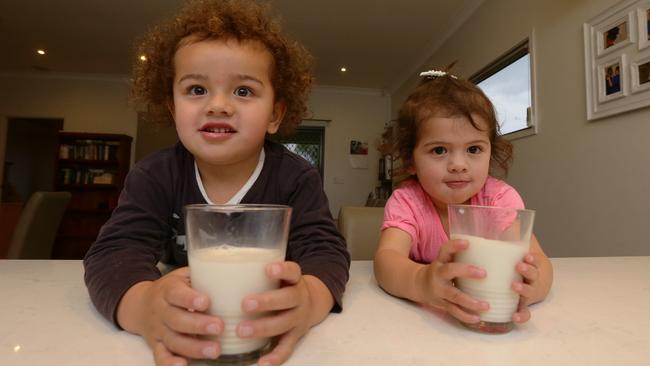Sugary drinks tax would reduce consumption by children, study finds
PARENTS would cut their child’s consumption of sugar sweetened beverages if the cost increased, indicating a tax on the drinks would be successful in forcing families to make healthier choices.

VIC News
Don't miss out on the headlines from VIC News. Followed categories will be added to My News.
PARENTS would cut their child’s consumption of sugar sweetened beverages if the cost increased, indicating a tax on the drinks would be successful in forcing families to make healthier choices.
A new University of Melbourne paper based on a survey of 500 Victorian families found half of the households give their two year olds either fruit juice, cordial or fizzy drinks in a typical week.
When asked questions about their buying and consumption habits, Professor Tony Scott from the Melbourne Institute of Applied Economic and Social Research said that most parents said they gave their child juice.
The consumption rates of sugary drinks were the same regardless of their parent’s economic situation.
When the researchers increased the price fizzy drinks, cordial and fruit juice, low incomes households indicated they would be more likely to reduce their child’s consumption than high income earners.
Just a small increase in price, of 10 per cent, resulted in a 8-9 per cent reduction in the amount the parents said they would give their children.
“That tells us that if prices rose on soft drinks because of a tax that it would reduce consumption of juice, cordial and fizzy drinks,” Prof Scott said.
Although it was expected that low income earners would be more price sensitive, Prof Scott said it was interesting that they were also more interested in the characteristics of the drink, for instance, whether it was labelled ‘diet” or had “no added colours of preservatives.”
“You would expect that those on higher incomes are higher educated and bit more knowledgeable about the health effects, but it was people on lower levels who were slightly more likely to respond to the labelling.”
The British Government plans to introduce a tax on soft drinks, reigniting calls by leading health groups for a similar move here to stop the rising number of overweight and obese children and reduce dental decay.
Modelling recently estimated that a 20 per cent tax on sugary drinks in Australia could save 1,600 lives over 25 years.
Australian Beverages Council CEO Geoff Parker said one of the success stories often presented by sugar tax advocates is Mexico, even though its’ tax was a “dismal failure.”
“Mexicans aren’t getting any thinner because of the tax, and two thirds of the tax revenue is being collected by the lowest socio-economic households,” Mr Parker said.
“This would suggest that the most perfect university statistical model fails when it’s applied to real life.”


